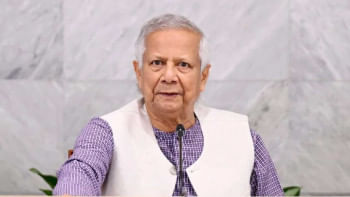Bringing the Case Method Home: Lessons from Harvard for Bangladesh and Beyond

I recently had the privilege of taking part in a seven-day intensive training at the Global Colloquium on Participant Centered Learning (Glocoll) at Harvard Business School, where 145 global faculty members met to engage deeply with the Harvard case teaching method.
The experience was intellectually demanding, immersive, and transformational; not only in terms of pedagogical practice, but also in challenging our understanding of how future leaders are best shaped. One of Harvard's key takeaways was its commitment to expanding the global reach of its case pedagogy, a mission that resonates deeply with me as an educator from Bangladesh.
The case method, though pioneered and perfected at Harvard, does not merely transfer knowledge, it cultivates judgment, decision-making under uncertainty, empathy and openness for diverse viewpoints, and the courage to defend (and re-examine) one's position. In a classroom guided by the case method, the professor steps back and lets the students take center stage. The result is not passive learning, but a lively forum where ideas collide, evolve, and spark leadership.
In a typical case class, students take on the roles of entrepreneurs, CEOs, policymakers, or field officers. They must analyze incomplete information, make decisions under pressure and uncertainty, and defend those decisions in front of their peers. There is no "right answer," only rigorous argumentation.
This made me reflect: how do we adapt and integrate such an approach at the higher education institutions in Bangladesh, where case-based learning is still emergent?
Why It Matters for Bangladeshi Higher Education
Our education system in Bangladesh, as in many parts of South Asia, has long prized rote learning and examination performance which potentially led to the teaching being lecture-driven, prioritizing content mastery over critical engagement. Graduates often leave with information, but not necessarily with the tools to analyze ambiguity, lead ethically, or navigate complex socio-economic landscapes. We are living in a world where problems are interconnected and unpredictable: such as climate change, digital transformation, inequality, geopolitics. Our future leaders need not just right answers, but the ability to ask better questions.
Bangladesh now stands at a pivotal moment. Our economy is growing, our youth population is vibrant, and our private sector is innovating. Yet, our education system often lags in equipping students with the necessary skills and critical thinking ability to lead in complex environments. In countries like ours marked by rapid growth, youth bulges, and social transition, case-based learning is not just desirable, it is essential. Cases contextualized to Bangladeshi realities can illuminate pressing issues. If we do not write and teach our own cases, we risk producing graduates who are well-versed in foreign dilemmas but unequipped to solve the ones at their doorstep.
The Case for Local Cases
One of the strongest messages from the training was this: The world needs more cases from the Global South. If we teach only Western cases, we train our students to solve someone else's problems. Without local context, even the most well-structured debate becomes disconnected from the social and economic challenges our youth will face. At the same time, by showcasing Bangladeshi companies with their ingenuity, grit, and growth, it also enriches the global understanding of business innovation in emerging markets.
Bangladesh is full of stories worth telling and learning. The informal sector's resilience; the garment industry's sustainability crossroads; the rise of digital financial services and ed tech in underserved areas. Each of these could be a case that provokes discussion on ethics, strategy, policy, and innovation. This is a strategic branding opportunity for the country. Through these cases, Bangladesh can project its institutional evolution and entrepreneurial culture. For policymakers, educators, and corporate leaders, it opens a new frontier of influence through knowledge exchange. There is a strong need to invest in the production of local cases not just to reflect our environments, but to shape how our students think about and take responsibility for them.
Preparing for a Case-Based Transition
Implementing the case method is not as simple as importing a few foreign cases and teaching them. It requires a systemic shift in mindset, pedagogy, and institutional support. It will require:
Faculty Development: Establish training and development for faculty across disciplines to master case teaching techniques starting with business schools, but expanding to law, public policy, and social sciences.
Local Case Writing Initiatives: Encourage faculty and researchers to develop homegrown case studies. Collaborations with businesses, NGOs, and government agencies can provide rich material to dig our own dilemma and innovative solutions to address the dilemma
Curricular Reform: Integrate case discussions not as occasional supplements, but as core instructional approaches especially in strategy, ethics, management, and leadership-focused courses.
Student Orientation: Prepare students to thrive in a case-based environment by cultivating questioning, debate, and reflection from the early stages of higher education.
Regional Collaboration: Partner with institutions outside Bangladesh to co-develop and exchange regional cases, fostering intercultural understanding and shared learning.
A pedagogy with purpose
In a world where leadership often feels shallow and performative, the case method offers something deeper: the discipline of listening, the courage to take a stance, and the humility to change your mind. It teaches not just how to think, but how to lead with empathy, responsibility, and rigor. We in Bangladesh deserve nothing less. It is time we create a learning environment and classroom which reflect the complexity of our realities and let our students become the protagonists in the stories we write and tell and the future we shape.
The author is a professor of IBA, Dhaka university and the opinions expressed are her own and she can be reached at [email protected]

 For all latest news, follow The Daily Star's Google News channel.
For all latest news, follow The Daily Star's Google News channel. 



Comments